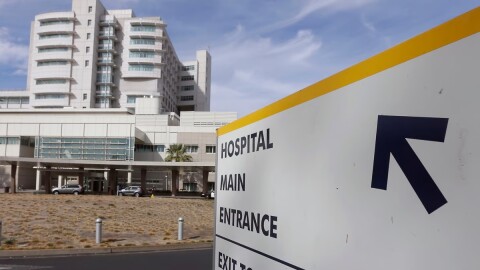-
The federal government suspended an annual Medicaid renewal requirement during COVID-19. Now that it has resumed, many Californians are losing coverage for “procedural reasons.”
-
Children on Medi-Cal, California’s insurance program for its poorest residents, might wait months for urgent psychiatric care, according to an audit released last week.
-
Medi-Cal and other programs are testing food prescriptions that advocates say could improve chronic conditions, lower health care costs and reduce hunger.
-
Many of the people who lost Medi-Cal are likely still eligible for health care coverage if they can get their paperwork to county offices in the next 90 days.
-
Medi-Cal is a statewide program, but it is administered by the counties, which have separate government bureaucracies and different approaches to care.
-
Medi-Cal is changing how it pays mental health providers. Many of those providers say they may no longer be able to afford peer support specialists, home visits and other services.
-
Two proposals that would usher in single-payer health care have divided former allies in the fight for reform.
-
California Healthline has learned that a coalition of doctors, hospitals, insurers, and community clinics want to lock in a tax on health insurance companies to draw in extra Medicaid funding. It also wants to make the tax permanent.
-
California wants to increase pay for some Medi-Cal providers. How it might help patients access careCalifornia officials are proposing to increase reimbursement rates for some Medi-Cal providers, who say low pay rates prevent them from taking more patients.
-
Sporting a bright smile and the polished Super Bowl ring he won as a star NFL player in the late 1980s, Craig McEwen doesn’t fit the archetype of someone teetering on the brink of homelessness.
-
Gov. Gavin Newsom, whose administration is struggling to contain a worsening homelessness crisis despite record spending, is trying something bold: tapping federal health care funding to cover rent for homeless people and those at risk of losing their housing.
-
In April, the state will resume its annual eligibility reviews for Medi-Cal. With some enrollees no longer qualifying or unaware they need to renew their coverage, officials estimate 2 million to 3 million people could lose their insurance.
-
Centene Corp. has agreed to pay more than $215 million to California over allegations it overcharged the state for pharmacy services — the biggest payout to date by the nation’s largest Medicaid insurer over its drug pricing practices.
-
States are preparing to remove millions of people from Medicaid as protections put in place early in the covid-19 pandemic expire.















